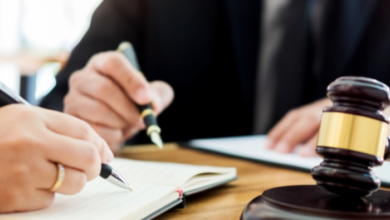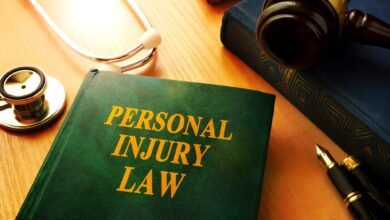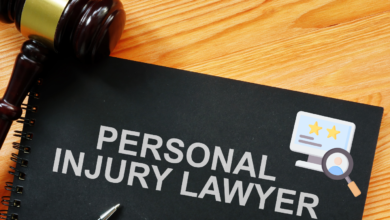Personal Injury Pitfalls: How to Avoid Legal Traps

What are personal injury pitfalls? Personal injury cases can be overwhelming, especially for individuals navigating the complex legal landscape for the first time. From car accidents to slip-and-fall incidents, understanding the potential legal pitfalls is crucial to securing a favorable outcome. In this guide, we will explore essential strategies to avoid common traps and pitfalls associated with personal injury claims.
Personal Injury Pitfalls
Personal injury cases arise when an individual suffers harm due to another party’s negligence or intentional actions. The aftermath of such incidents can be physically, emotionally, and financially draining. It is vital to tread carefully through the legal process to avoid potential pitfalls that could jeopardize the case’s success.
Understanding Personal Injury Laws
Before delving into the specific traps to avoid, it’s crucial to have a foundational understanding of personal injury laws. These laws vary by jurisdiction but generally cover a range of incidents, including motor vehicle accidents, premises liability, and medical malpractice.
Legal Pitfalls to Avoid
Failure to Seek Immediate Medical Attention
One common pitfall is neglecting to seek prompt medical attention after an accident. Delayed medical care not only jeopardizes health but can also weaken the connection between the injury and the incident, making it challenging to prove causation.
Giving Statements to Insurance Adjusters Without Legal Counsel
Providing statements to insurance adjusters without consulting an attorney can be detrimental. Adjusters may use these statements against the injured party, minimizing the claim’s value. It’s essential to have legal representation before engaging with insurance companies.
Missing the Statute of Limitations
Every jurisdiction imposes a statute of limitations and a deadline for filing a personal injury lawsuit. Missing this deadline can result in the inability to pursue compensation. It’s imperative to be aware of and adhere to the applicable statute of limitations.
Accepting the First Settlement Offer
Accepting the initial settlement offer from an insurance company without a thorough evaluation can be a grave mistake. Often, these offers are lower than the actual damages incurred. Consult with an attorney to assess the adequacy of any settlement proposal.
Choosing the Right Attorney
Importance of Hiring a Specialized Personal Injury Attorney
Selecting the right attorney is a critical decision in any personal injury case. Opting for a lawyer with expertise in personal injury law ensures that the legal representation is tailored to the specific nuances of such cases.
Qualities to Look for in an Attorney
When choosing an attorney, look for qualities such as experience, a successful track record, and excellent communication skills. A reliable attorney will prioritize the client’s best interests and work diligently to achieve a favorable outcome.
Documenting the Accident
Importance of Collecting Evidence
Documenting the details of the accident is pivotal for building a strong case. Collect evidence such as photographs, videos, and any relevant documents that can substantiate the claim.
Taking Photographs and Videos
Visual evidence is powerful in personal injury cases. Capture photographs of the accident scene, injuries sustained, and any contributing factors. Videos can provide additional context.
Obtaining Witness Statements
Witness statements can strengthen the case by providing independent accounts of the incident. Collect contact information from witnesses and seek their cooperation in providing statements to support your claim.
Dealing with Insurance Companies
Tips for Communicating with Insurance Companies
Effective communication with insurance companies is essential. Provide only necessary information, and refrain from admitting fault. It’s advisable to let an attorney handle interactions with insurance adjusters.
What to Avoid Saying to Insurance Adjusters
Avoid making statements that could be misconstrued or used against you. Refrain from apologizing or speculating about the extent of your injuries. Let your attorney guide you on how to communicate with the insurance company.
Calculating Damages
Different Types of Damages in Personal Injury Cases
Understanding the various types of damages, including economic and non-economic damages, is crucial. Economic damages cover tangible losses like medical expenses, while non-economic damages encompass pain and suffering.
How Damages Are Calculated
The calculation of damages involves assessing medical bills, lost wages, property damage, and other relevant factors. An experienced attorney can help determine the appropriate amount of compensation based on the specific circumstances of the case.
Negotiation Strategies
Tips for Effective Negotiation
Negotiating with insurance companies or opposing parties requires strategy. Be patient, and do not settle for less than the case’s actual value. An attorney experienced in negotiation can navigate these discussions effectively.
When to Involve a Mediator
If negotiations reach an impasse, involving a mediator may be beneficial. Mediation offers a facilitated discussion to help parties reach a mutually agreeable resolution outside the courtroom.
Understanding Contingency Fees
Explanation of Contingency Fee Arrangements
Many personal injury attorneys work on a contingency fee basis, meaning they only get paid if the case is successful. This arrangement allows individuals without significant upfront funds to access legal representation.
Pros and Cons of Contingency Fees
While contingency fees offer accessibility, it’s essential to understand the associated pros and cons. Discuss the fee structure with your attorney to ensure a clear understanding of the financial arrangement.
Courtroom Considerations
Preparing for a Court Appearance
In some cases, personal injury claims proceed to court. Adequate preparation, including understanding court procedures and potential questions, is crucial for a successful courtroom appearance.
What to Expect During a Personal Injury Trial
A personal injury trial involves presenting evidence, witness testimonies, and legal arguments. Knowing what to expect can alleviate anxiety and help individuals navigate the courtroom process confidently.
Alternative Dispute Resolution
Overview of Alternative Dispute Resolution Methods
Alternative dispute resolution methods, such as mediation and arbitration, provide alternatives to traditional court proceedings. These methods can be quicker and less adversarial, offering a more collaborative approach to dispute resolution.
When to Consider Mediation or Arbitration
Choosing mediation or arbitration depends on the specific circumstances of the case. Factors such as the willingness of parties to cooperate and the complexity of the dispute influence the decision to pursue alternative dispute resolution.
Staying Informed Throughout the Process
Importance of Staying Updated on the Case
Remaining informed about the case’s progress is crucial. Regular communication with the attorney ensures individuals stay apprised of developments, enabling them to make informed decisions throughout the legal process.
Regular Communication with the Attorney
Maintaining open communication with the attorney fosters a collaborative partnership. Individuals should feel comfortable seeking clarification on legal matters and expressing any concerns or questions they may have.
Common Mistakes to Avoid
Ignoring Legal Advice
One of the most significant mistakes is disregarding legal advice. Trust the expertise of the attorney and follow their guidance to avoid potential pitfalls.
Discussing the Case on Social Media
Social media can be a double-edged sword during legal proceedings. Refrain from discussing the case online, as posts and comments can be used against you.
Failing to Disclose Pre-existing Conditions
Full disclosure is essential in personal injury cases. Failing to disclose pre-existing conditions can undermine credibility and jeopardize the case.
Emotional Well-being During Legal Proceedings
Coping with Stress and Anxiety
Legal proceedings can be emotionally taxing. Finding healthy coping mechanisms, such as seeking support from friends and family or engaging in stress-relief activities, is crucial.
Seeking Emotional Support
Don’t hesitate to seek professional emotional support if needed. Counselors and support groups can provide valuable assistance during challenging times.
Conclusion
In navigating personal injury cases, awareness of potential pitfalls and proactive measures are key to success. By understanding the legal landscape, choosing the right attorney, documenting the incident thoroughly, and staying informed, individuals can enhance their chances of a favorable outcome.
FAQs
- Should I talk to the insurance company without an attorney?
- It’s advisable to consult with an attorney before engaging with insurance companies to avoid unintentionally compromising your case.
- How long do I have to file a personal injury lawsuit?
- The statute of limitations varies by jurisdiction. Consult with an attorney promptly to determine the applicable deadline for your case.
- What factors affect the calculation of damages?
- Factors such as medical expenses, lost wages, and the extent of pain and suffering contribute to the calculation of damages.
- Can I settle my case without going to court?
- Yes, many personal injury cases are resolved through negotiation or alternative dispute resolution methods without going to court.
- Is emotional support important during a personal injury case?
- Yes, seeking emotional support is crucial. Coping with the stress of legal proceedings is easier with a strong support system in place.











